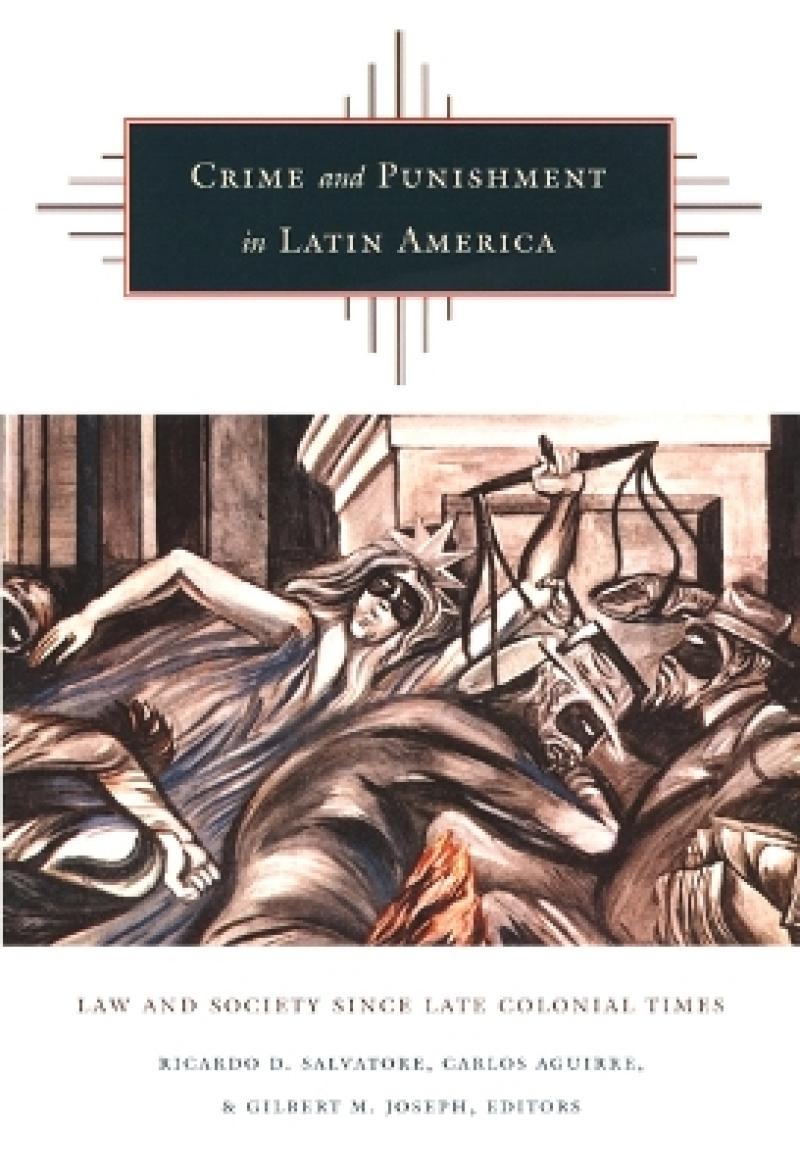“This collection makes clear, through well-researched case studies and specific examples, that the law and legal institutions have had a more important role in maintaining the social order and the regulation of contention in Latin American history than previously revealed. As such, it will have a crucial impact on this and other fields.”--Thomas H. Holloway, University of California, Davis “This volume marks a breakthrough in the historical study of criminality, social deviance, punishment, and legal systems in Latin America. The contributions are empirically deep, interestingly theorized, and brought together by a very sophisticated introductory essay. The essays immerse us in such vital themes as modernization and the law, the medicalization of crime and deviance, and the modes by which ordinary people faced the state and its institutions-in the broad issue of legal culture, in other words.”-Eric Van Young, University of California, San Diego "A very useful introduction. . . . This volume offers many insights into comparative histories with other formative legal orders. . .. A real milestone for historians wanting to take legal institutions seriously without portraying them in some of the rigid ways they once were." - Jeremy Adelman (Journal of Latin American Studies) "Fascinating. . . . Valuable for Latin Americanists precisely because the editors and authors succeed in making connections across time and space, and it is an important resource for nonspecialists looking for comparative examples and new perspectives to bring to their studies." - Joan Bristol (Journal of Social History) "This volume's primary contribution is . . . a broadly comparative perspective on the ascendance of 'modernizing' liberal ideologies. Perhaps most importantly, these essays expose the disunity and incompleteness of Latin America's liberal project, as well as the marked divergence between the political liberalism of consolidating Latin American and the market liberalism of the United States and Britain." - Jocelyn Olcott (EIAL)
While disassociating law from a strictly legalist approach, the volume showcases a number of highly original studies on topics such as the role of law in processes of state formation and social and political conflict, the resonance between legal and cultural phenomena, and the contested nature of law-enforcing discourses and practices. Treating law as an ambiguous and malleable arena of struggle, the contributors to this volume-scholars from North and Latin America who represent the new wave in legal history that has emerged in recent years-- demonstrate that law not only produces and reformulates culture, but also shapes and is shaped by larger processes of political, social, economic, and cultural change. In addition, they offer valuable insights about the ways in which legal systems and cultures in Latin America compare to those in England, Western Europe, and the United States.
This volume will appeal to scholars in Latin American studies and to those interested in the social, cultural, and comparative history of law and legal phenomena.
Contributors. Carlos Aguirre, Dain Borges, Lila Caimari, Arlene J. DÍaz, Luis A. Gonzalez, Donna J. Guy, Douglas Hay, Gilbert M. Joseph, Juan Manuel Palacio, Diana Paton, Pablo Piccato, Cristina Rivera Garza, Kristin Ruggiero, Ricardo D. Salvatore, Charles F. Walker
Preface / Gilbert M. Joseph
Acknowledgments
Introduction: Writing the History of Law, Crime, and Punishment in Latin America / Carlos Aguirre and Ricardo D. Salvatore
Part I. Legal Mediations: State, Society, and the Conflictive Nature of Law and Justice
Crime in the Time of the Great Fear: Indians and the State in the Peruvian Southern Andes, 1780-1820 / Charles F. Walker
Women, Order, and Progress in GuzmÁn Blanco’s Venezuela, 1870–1888 / Arlene J. DÍaz
Judges, Lawyers, and Farmers: Uses of Justice and the Circulation of Law in Rural Buenos Aires, 1900–1940 / Juan Manuel R. Palacio
Work, Property, and the Negotiation of Rights in the Brazilian Cane Fields: Campos, Rio de Janeiro, 1930–1950 / Luis A. GonzÁlez
Part II. The Social and Cultural Construction of Crime
The Criminalizaton of the Syphilitic Body: Prostitutes, Health Crimes, and Society in Mexico City, 1867–1930 / Christina Rivera-Garza
Healing and Mischief: Witchcraft in Brazilian Law and Literature, 1890–1922 / Dain Borges
Passion, Perversity, and the Pace of Justice in Argentina at the Turn of the Last Century / Kristin Ruggiero
Cuidado con los Rateros: The Making of Criminals in Modern Mexico City / Pablo Piccato
Part III / Contested Meanings of Punishment
The Penalties of Freedom: Punishment in Post-emancipation Jamaica / Diana Paton
Death and Liberalism: Capital Punishment after the Fall of Rosas / Ricardo D. Salvatore
Disputed Views of Incarceration in Lima, 1890–1930: The Prisoners’ Agena for Prison Reform / Carlos Aguirre
Girls in Prison: The Role of the Buenos Aires Casa Correccional de Mujeres as an Institution for Child Rescue, 1890–1940 / Donna J. Guy
Remembering Freedom: Life as Seen From the Prison Cell (Buenos Aires Province, 1930–1950) / Lila M. Caimari
Afterword: Law and Society in Comparative Perspective / Douglas Hay
Contributors
Index
Produktdetaljer
Biografisk notat
Ricardo D. Salvatore is Professor of Modern History at the Universidad Torcuato di Tella in Buenos Aires, Argentina.
Carlos Aguirre is Assistant Professor of History at the University of Oregon.
Gilbert M. Joseph is Farnam Professor of History and Director of Latin American and Iberian Studies at Yale University.
